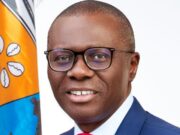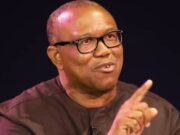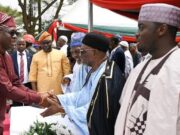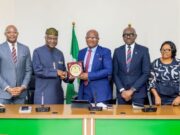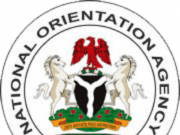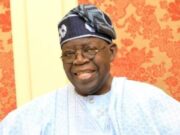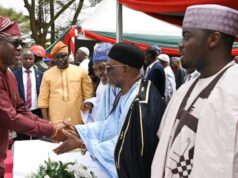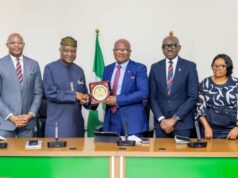MTN Nigeria, Glo and Airtel have raised their end user tariff in line with the 50 per cent tariff adjustment granted to the mobile network operators (MNOs) by the Nigerian Communications Commission (NCC).
MTN raised the price of voice calls on its pulse bundle to ₦13.80 per minute or 23 kobo per second from ₦7.80 per minute or 13 kobo per second, representing a 76.92 per cent increase.
Recall the call tariff rate was N11 per minute before the price adjustment was approved by the NCC while short message service (SMS) was ₦4 per text message.
Chairman, Association of Telecom Companies of Nigeria (ALTON), Gbenga Adebayo, said the MNOs cannot charge the same rate across the network, saying the MNOs will operate within the highest and lowest band allowed by the NCC.
According to random calls on the network yesterday, a 62 seconds call from Airtel to Airtel attracted ₦15.50 or an average of N15 per minute, a 36 percentage increment.
Another call from Glo to Airtel that lasted 56 seconds attracted ₦14.56 while another call that lasted one minute one second was charged at N15.86
A call from Glo to an MTN number that lasted one minute four seconds was charged at ₦16.64. On the average, what the operators have added to the previous ₦11 per minute for call is ₦4.60, representing 42 per cent adjustment in voice call tariffs.
Two industry sources within the telco expressed contrary opinions. While one admitted that indeed, the operators had started implementing a new tariff regime, the other said his organisation is yet to implement any tariff hike.
From the existing pricing template gathered from making calls at an average of N15 per minute, it is obvious that per second call on the network now attracts 25 kobo.
Efforts to get the voice call tariff of 9mobile was fruitless as successful calls made on the network did not show how much cash was spent but rather, the number of seconds the call lasted on the network.
A visit to the website of Airtel Nigeria and Globacom, however, did not show any adjustment yet on their data bundles. One of them even denied ever increasing call tariff, saying the increment noticed in call cost might be a result of interconnect charges for off net calls, that is calls that originated from other networks to the operator.
But all the telco, except 9mobile, and Glo have also increased their SMS rate from ₦4 to ₦6, fairly representing the 50 per cent adjustment. MTN had stated: “Y’ello! Keep enjoying calls at 23k/s to all networks and ₦6/SMS on Pulse.”
Last week, the telco implemented new price rates for different data plans, including a 1.8GB monthly plan for ₦1,500, replacing the previous 1.5GB plan priced at ₦1,000.
Its 20GB plan has been adjusted to ₦7,500, up from ₦5,500, while the 15GB plan now costs ₦6,500, up from ₦4,500. Its 90-day 1.5TB plan has jumped from ₦150,000 to ₦240,000, and the 600GB 90-day plan increased from ₦75,000 to ₦120,000. Its two/three-month data plan of 100GN for ₦20,000 is now 90GB for ₦25,000; 160GB for ₦30,000 is now 150GB for ₦40,000.
The NCC approval a 50 percent increase in the price of calls, data, and SMS on January 20 for the first time in over a decade, has generated widespread reaction from the organised labour, the Nigeria Labour Congress (NLC), the civil society groups and consumer advocacy bodies including the Association of Telephone, Cable TV, and Internet Subscribers of Nigeria (ATCIS) and National Association of Telecom Subscribers of Nigeria (NATCOMS).
The NLC last week asked telecom companies to reverse the implementation of tariff hike until a committee set up by the Federal Government completed its work.
The NLC took the decision at the end of its Central Working Committee (CWC) meeting in Lokoja, Kogi State.
A communique signed by NLC President, Joe Ajaero and General Secretary, Emmanuel Ugboaja respectively, directed all workers and citizens to suspend the purchase of Data from these companies which has also become one of their greatest tools for exploiting Nigerian citizens.
The communique reads: “CWC demands an immediate reversal of the tariff hike, which took effect today, and insists that the companies revert to the previous tariff until the committee completes its deliberations and reaches a conclusive agreement.
“As a first step in resisting this arbitrary tariff hike, the CWC has directed that, beginning Thursday, February 13, 2025, Nigerian workers and other willing citizens shall boycott the services of MTN, AIRTEL, and GLO daily between 11:00 AM and 2:00 PM until the end of February 2025.
“All workers and citizens are urged to suspend the purchase of Data from these companies which has also become one of their greatest tools for exploiting Nigerian citizens.
“We also demand the repatriation of all funds siphoned out of the country by these companies.
“If the telecommunications companies fail to revert to the old tariff by the end of February 2025, a total shutdown of their operations nationwide will commence from March 1, 2025.”
The NLC directed its affiliates to commence immediate sensitisation and mobilisation of their members and the general public within their jurisdictions.
“All NLC Affiliate Unions are requested to mobilize their members across the country to observe electronic silence during the designated hours.
“We implore all of our Civil society allies and other interested stakeholders to join us in making this action effective.
“The NLC remains committed to defending the rights and welfare of Nigerian workers and citizens. The CWC calls on all Nigerians to unite in this struggle against exploitative economic policies and to actively participate in the outlined actions to demand justice and fairness in telecom, taxation, and transportation policies.”
While ATCIS has shown favourable disposition to the tariff adjustment, the group however faulted the implementation strategy. President of the group, Sina Bilesanmi, said the telcos should have, via an SMS, informed their customers about the tariff adjustment. According to him, the MNOs ought to have presented, in a tabular, transparent manner, present the new adjustment and share with their customers. A situation in which the MNOs resort to their social media handles to announce major decisions that will impact the lives of the customers is not good enough, he argued.
NATCOM’s President, Chief Deolu Ogunbanjo, had expressed shock at the brazen implementation of the tariff adjustment. According to him, the NLC, NCC and other interested parties had met and agreed that the MNOs tarry till February end to settle disputes as to the percentage increment approved. Specifically, Ogunbanjo said his plan to seek redress in court by way of obtaining a restraining order on the MNOS was shelved on the understanding that there will still be room for dialogue. He urged the NCC to show courage by sanctioning the telcos that have started implementing the new tariff.
Adebayo said the approval is meant to support telcos’ ability to continue investing in infrastructure and innovation. He said the recovery process for the industry has started after over two decades of stagnated telecom tariff regime.
The MNOs said while the cost of energy, forex, removal of subsidy removal had all wreaked havoc on the economy, pushing the nation to the worst inflationary spiral in over two decades, they were stopped from charging a price that would only assure that they remained in business. “We have been charging prices that do not recover our investment, let alone assure profit,” one industry operator said.
Chief Executive Officer at Financial Derivatives Company, Bismarck Rewane, said the adjustment promises to benefit operators but will put additional strain on consumers’ pockets, possibly resulting in reduced usage from consumers.
He underscored the importance of investment in the sector, saying with the right investment, the industry could increase its gross domestic product (GDP) from 12.1 per cent to 16.8 per cent by 2028.
“Investment in developing internet infrastructure and broadband connectivity will increase data consumption by businesses and individuals, expanding rural broadband will promote inclusive access empowering underserved communities with education, health and economic opportunities.
“Broadband growth will create tech jobs and drive demand for digital skills supported by training programmes and government initiatives,” he said.
MTN Nigeria CEO, Karl Toriola, had said the industry was in an ICU, gasping for breath and requested a 100 per cent tariff adjustment.
Credit: thenationonlineng.net



















